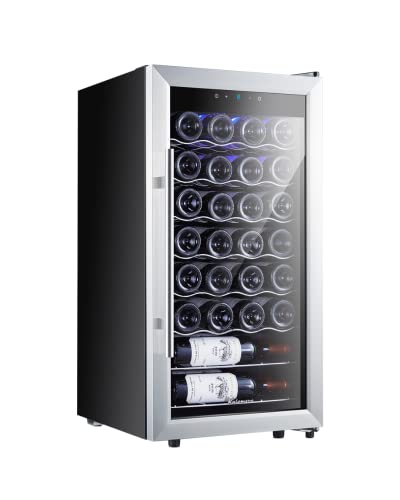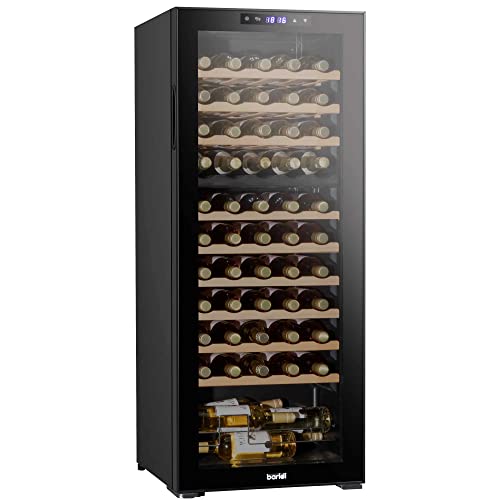 Choosing a Beverage and Wine Refrigerator
Choosing a Beverage and Wine Refrigerator
This dual-zone refrigerator is ideal for cooling and storing both wine and beer. It can be built-in or freestanding, with a sleek seamless door that looks great in any space.
 While vibration is generally safe but it can disrupt the sediment of a bottle and cause complex chemical reactions that are not evident. This can alter the taste and reduce esters over time.
While vibration is generally safe but it can disrupt the sediment of a bottle and cause complex chemical reactions that are not evident. This can alter the taste and reduce esters over time.
Control of Humidity
Humidity is the amount of water vapor present in the air. It fluctuates throughout the day based on a variety of factors. Temperature, precipitation, and wind can all have a significant influence on the level of humidity. It is important to maintain the humidity level at a certain level for many reasons. Humidity can affect weather patterns, indoor air quality and even wine storage. The aromatic compounds that are present in wine are sensitive to changes in humidity. If humidity is too high, it can affect the balance of these substances and alter the taste of the wine. A wine refrigerator can help maintain the proper humidity level to preserve a bottle’s taste.
A wine refrigerator can prevent cork deterioration and ensure the proper seal. Corks can dry out when the humidity is too low. This allows oxygen to get into the bottle and accelerates the process of aging. A wine fridge can help to maintain a humidity level of 55%-75 percent to prevent this from happening.
Wine coolers are also a great way to store beer and wine. A wine cellar is primarily designed to be used for long-term storage. These units often have dedicated spaces for beer bottles so you can keep your favorite craft beers and lagers right next to your favorite wines. They also have effective designs that balance the humidity and temperature to avoid condensation that can damage labels or packaging.
Most models have an hygrometer which lets you monitor and adjust humidity levels in your wine cooler. You can use a humidifier in your wine refrigerator to increase the humidity.
If you decide to use a dehumidifier, make sure it’s set up in a separate space from the wine fridge uk fridge. This will ensure that the dehumidifier does not absorb any of the beers or wines you’re storing in the fridge. If you intend to store your wine for a long duration, controlling humidity is essential. In a short amount of time, you may not notice any changes in your wine, however over time the absence of humidity can significantly alter the taste of your wine.
Vibration Absorption
Vibrations inside the wine fridge could interfere with the natural aging of the stored wines. Even minor vibrations can cause sediment to move into the bottle, which triggers complex chemical reactions that can reduce esters and dull the wine’s flavor as time passes. All La Sommeliere units have a vibration absorption system that minimizes vibrations and noise which allows your wine to age peacefully and properly.
Despite the fact that wine refrigerators emit less noise than conventional refrigerators, the fans and refrigerant circuits that are that are found in a lot of units are still capable of creating noise. This is why it is important to follow all clearance guidelines when installing your wine cooler and place the unit in a quiet spot away from any other sources of noise.
Furthermore, it is recommended to regularly clean your wine cooler using an anti-abrasive cleaner and allow the unit to “air out” before filling it with bottles. This will reduce the amount of dust and dirt that can accumulate in the air vents.
If you notice that the wine fridge is making loud noises, it could be caused by a malfunctioning compressor or electric fan. The compressor is typically located behind the wine refrigerator. If it is placed in an unbalanced position or bumps into something behind it the rubber mounts could be shaken loose and cause loud humming noises.
The compressor wine cooler functions like a standard refrigerator by electronically compressing air molecules, which lowers their temperature, and then blowing them through the interior of the refrigerator. This kind of cooling is more energy-efficient than other cooling methods like evaporator or frost-free refrigerators. Compressor wine coolers are noisy and require regular maintenance. This is why many consumers choose to purchase thermoelectric wine coolers that don’t use compressor systems.
Temperature Control
Wine, as well as beer and wine refrigerator, has specific temperature requirements to maintain its optimal flavor. This is why it is important to choose the right wine fridge and beverage refrigerator with adjustable temperature controls so you can store your drinks at the perfect temperature for storage and serving for each type. There are dual-zone models that provide separate temperature zones for wine bottles and separate temperature zones for beer or other beverages.
In general, the majority of beer types are served cooler than wines. The ideal temperature to serve the particular style will depend on the style and the method used to make it. For instance, wheat beers and pilsners can be enjoyed between 40 and 50 degrees Fahrenheit while sours, IPAs barleywines, and more robust ales should be served between 50-55 degrees Fahrenheit. If you let your beer warm too much it will begin to develop a unpleasant “skunky” smell that can make drinking unpleasant.
You’ll need a wine refrigerator that has the right temperature range to your favorite reds and whites. Some wine refrigerators even include humidity-control features that help prevent the cork from oxidation and keep it in good shape. Some wine refrigerators contain a special UV-blocking glass that helps stop sunlight from damaging the wine and making it age prematurely.
A refrigerator’s temperature control system can be powered by compressor technology or thermoelectric cooling. Compressors use vapor compressors to lower temperatures in the wine refrigerator, whereas thermoelectric models use electronic convection fans to circulate cool air throughout the refrigerator. For the best results, many refrigerators use both of these two technologies.
If you’re considering buying a beverage and wine fridge that uses compressor technology, you should look for one that has vibration-absorbing shock pads. This is because the rumble generated by compressor-based operations can disrupt the normal process of maturing wine and accelerate the process of oxidation.
While you can purchase an appliance that is specifically designed for wine, you may find it more cost-effective to buy a conventional refrigerator or a regular refrigerator that has a large interior with movable shelves and ample storage on the doors. You can then customize the space to accommodate an array of wine, beer, as well as other bottles and cans.
Storage Options
Think about a cooler for drinks If you are a host at events. These refrigerators can hold cans and bottles of tall wine chiller, beer and other drinks that are ice-cold such as soda and water. They’re available in freestanding and built-in models. Built-in models can be integrated into cabinets or under counters in kitchens with limited space.
The two types of refrigerators are available in a broad range of sizes and designs that make them ideal for most homes. Look for models that have sliding shelves that make it easier to find your favorite wines and brews. Some refrigerators feature soft LED lighting that reveals your collection in a gentle light. Some refrigerators even have the option of controlling humidity. This can help to stop the growth of frost in your wine or beer bottles, so that you can enjoy your favourites without worrying about the accumulation of frost.
A refrigerator that features dual zones can store your preferred wines at the ideal serving temperatures. You can also utilize the separate zones to keep your craft beer in storage as it usually has similar ideal temperature ranges as the wine bottle. A dual zone wine refrigerator can hold larger bottles of beer or spirits than a standard household fridge.
Keep your beer and wine in an area that offers lighting protection. The proper conditions will prolong their lifespan. The refrigerator must also be free of odors, dust and other debris that could affect the taste of your drinks over time.
If you’re keeping a large collection of wines and you want to preserve their quality, consider a cellar refrigerator. This kind of refrigerator is made to be used for long-term storage. It operates at a slightly higher temperature than a wine beverage fridge fridge which allows your bottles to get older and develop their best flavor. A cellar refrigerator is also equipped with an humidifier to ensure the proper humidity. This ensures that the cork stays damp and impermeable, keeping external air and food items from entering your wine bottle, and deteriorating its quality over time.

